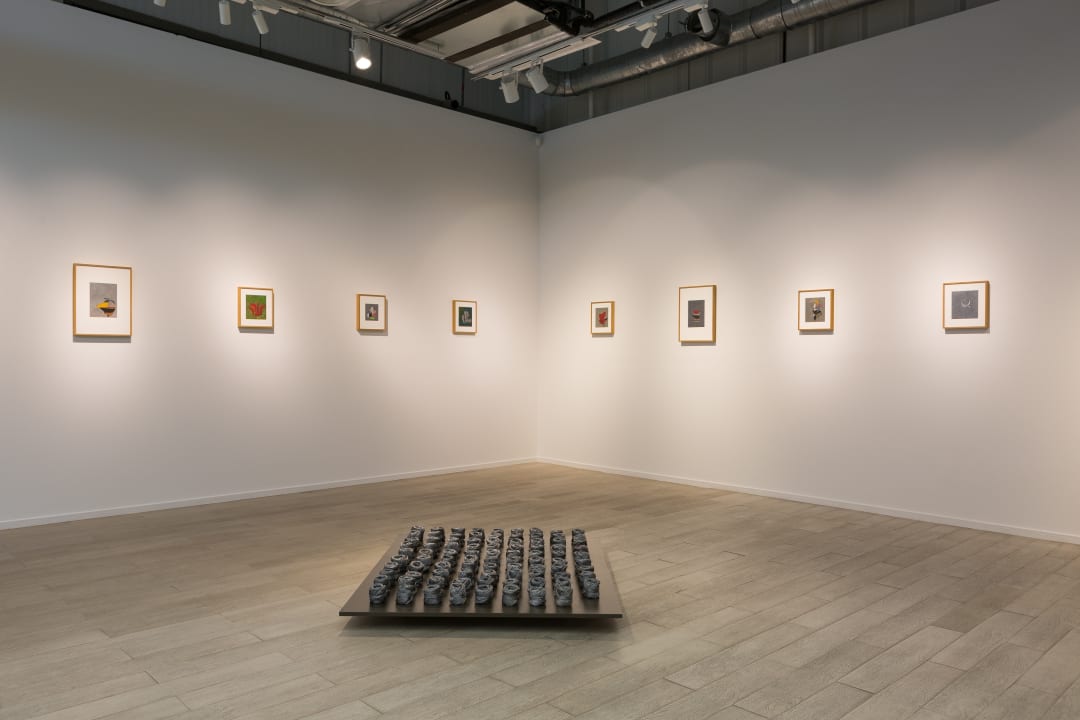STILL: Huda Lutfi
The Third Line is pleased to present Still, Huda Lutfi’s third solo exhibition at the gallery. Featuring new works produced over the last year and a half, the exhibition presents a different approach to Huda’s practice as she turns to minimalist and calligraphic abstractions to create compositions she calls ‘paper sculptures’.
Using recycled materials or her own discarded artworks, Huda employs a process of assemblage using paper cut outs – a signature technique in her artistic practice. Organic and geometric shapes of bold or muted tones are meticulously juxtaposed to create compositions that allow the shapes to co-exist and achieve a kind of visual balance. As she says, each of these creations works like a puzzle or a game of problem solving.
Cairo’s urban complexity has always been at the heart of Huda’s work. She manipulates disparate images and objects to re-invent a personal vision of the city in which she lives, its histories and on going events. In doing so, Huda simultaneously comments on the political relevance and social context through both metaphorical and literal visuals. In this series, however, Huda’s usual commentary takes a quieter approach; while her abstracted works may seem to lack social and political avowals, they reflect a deeper and more personal, introspective state.
Accompanying the collages are four new sculptures: Difficult to Unravel, Fan, Hanger, and Silent Journal, which display a tantalizing intersection between resilience and fragility. In Difficult to Unravel, multiple rolls of flax thread are painted in metallic silver, stiffening the threads and making them difficult to untangle. Concealing their original physical associations, the artist manipulates the recycled materials to render them as a renewed sense of play and strength.
Where it may appear like one has run out of things to say, Huda considers this series a loud stance of silence; a reaction to the world around her that manifests in reflection, and the unyielding practice of self-soothing. (Excerpted from an essay by Sara El Adl.)


